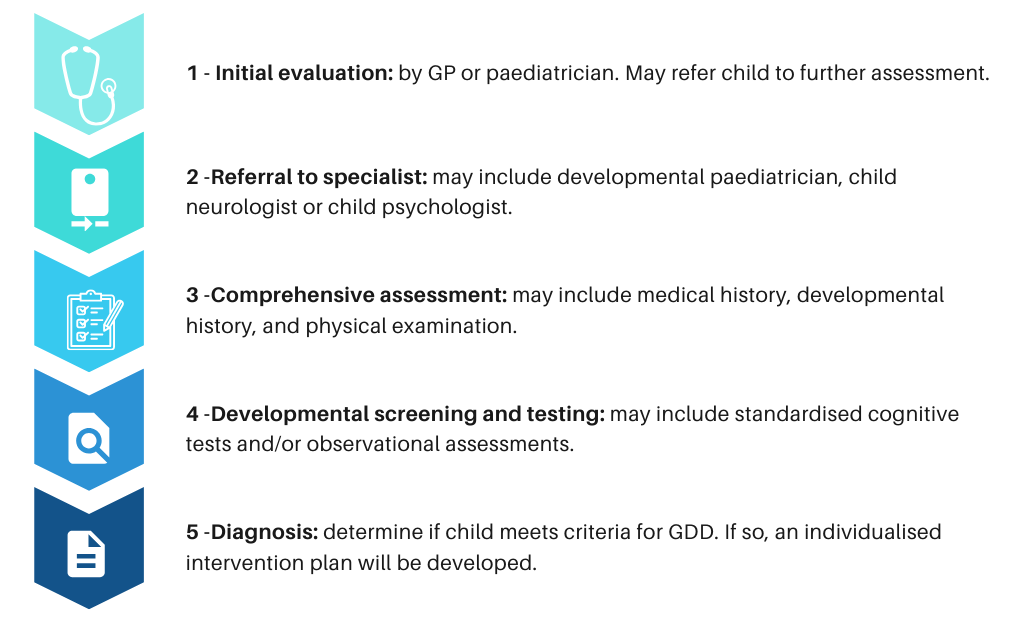


Global developmental delay (GDD) is a broad diagnosis for children under the age of 5 who exhibit a delay in two or more developmental domains (American Psychiatric Association, 2013). These delays interfere with the child’s normal daily functioning. Sometimes the terms ‘developmental delay’ and ‘global developmental delay’ are used interchangeably.
These developmental domains includes :
GDD diagnosis is often perceived as a preliminary diagnosis. Some individuals who are diagnosed with GDD are often reassessed when they are over five years old to gain a better understanding of their developmental progress. Often a health professionals use the term ‘developmental delay’ until they can work out what’s causing the delay and usually up until the age of 5 years. If and when they find the cause, they’ll use a term that better explains the child’s condition. This may include a learning disability, intellectual disability or cerebral palsy. Not all children with developmental delay will have a developmental disability. Developmental delays can be short term, such as during a phase of prolonged illness, or persistent. Diagnosis is guided by the Diagnostic and Statistical Manual for Mental Disorders, 5th edn (DSM-5-TR) and is usually done by a paediatrician or psychologist.
It is important to note that every child will develop differently and meeting developmental milestones is a complex process. For example, some children will crawl later than expected, but walk faster than expected. It is important to recognize individual differences are common, and global developmental delay is only diagnosed when a child is performing substantially below average across more than two areas. Developmental delays can occur in just a single domain
GDD involves a delay in at least two or more of the following domains:
 The degree of the delay is further sub-classified as:
The degree of the delay is further sub-classified as:
There is no single cause of GDD and it can be caused by various factors. Research (Belanger & Caron, 2018) suggests causes of GDD include:
Genetic factors
Prenatal factors
Perinatal factors
Environmental factors
Medical conditions
Other

Early intervention is important for GDD, as it can provide support and therapies that can significantly improve a child’s development and long-term outcomes. Early intervention may involve a combination of therapies, such as speech therapy, occupational therapy, and ABA therapy. These therapies focus on improving communication, social interaction, and adaptive skills, while also addressing challenging behaviours. Super Kids Behavioural Consulting provides individualised programs for children with GDD to help them develop new skills and overcome common barriers.
Below are some helpful resources on GDD and therapy options:
Facebook
Twitter
WhatsApp



